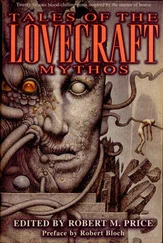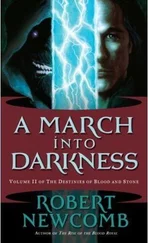Robert Pirsig - Lila. An Inquiry Into Morals
Здесь есть возможность читать онлайн «Robert Pirsig - Lila. An Inquiry Into Morals» весь текст электронной книги совершенно бесплатно (целиком полную версию без сокращений). В некоторых случаях можно слушать аудио, скачать через торрент в формате fb2 и присутствует краткое содержание. Жанр: Современная проза, на английском языке. Описание произведения, (предисловие) а так же отзывы посетителей доступны на портале библиотеки ЛибКат.
- Название:Lila. An Inquiry Into Morals
- Автор:
- Жанр:
- Год:неизвестен
- ISBN:нет данных
- Рейтинг книги:3 / 5. Голосов: 1
-
Избранное:Добавить в избранное
- Отзывы:
-
Ваша оценка:
- 60
- 1
- 2
- 3
- 4
- 5
Lila. An Inquiry Into Morals: краткое содержание, описание и аннотация
Предлагаем к чтению аннотацию, описание, краткое содержание или предисловие (зависит от того, что написал сам автор книги «Lila. An Inquiry Into Morals»). Если вы не нашли необходимую информацию о книге — напишите в комментариях, мы постараемся отыскать её.
Lila. An Inquiry Into Morals — читать онлайн бесплатно полную книгу (весь текст) целиком
Ниже представлен текст книги, разбитый по страницам. Система сохранения места последней прочитанной страницы, позволяет с удобством читать онлайн бесплатно книгу «Lila. An Inquiry Into Morals», без необходимости каждый раз заново искать на чём Вы остановились. Поставьте закладку, и сможете в любой момент перейти на страницу, на которой закончили чтение.
Интервал:
Закладка:
There are two ways to get rid of this sin, said the intellectuals. One is to force all children to conform to the ancient rules without ever questioning whether these rules are right or wrong. The other is to study the social patterns that have led to this condemnation and see how they can be altered to allow the natural inclinations of an innocent child to fulfill his needs without this charge of sinfulness arising. If the child is behaving naturally, then it is the society that calls him sinful that needs correction. If children are shown kindness and affection and given freedom to think and explore for themselves, children can arrive rationally at what is best for themselves and for the world. Why should they want to go in any other direction?
The new intellectualism of the twenties argued that if there are principles for right social conduct they are to be discovered by social experiment to see what produces the greatest satisfaction. The greatest satisfaction of the greatest number, rather than social tradition, is what determines what is moral and what is not. The scientific test of a vice should not be, Does society approve or disapprove? The test should be, Is it rational or irrational?
For example, drinking that causes car accidents or loss of work or family problems is irrational. That kind of drinking is a vice. It does not contribute to the greatest satisfaction of the greatest number. On the other hand, drinking is not irrational when it produces mere social or intellectual relaxation. That kind of drinking is not a vice. The same test can be applied to gambling, swearing, lying, slandering or any other vice. It is the intellectual aspect not the social aspect that dictates the answer.
Of all the vices none was more controversial than premarital and extramarital sex. There was no depravity the Victorians condemned more vehemently and no freedom the new intellectuals have defended more ardently. Scientifically speaking, sexual activity is neither good nor evil, the intellectuals said. It is merely a biological function, like eating or sleeping. Denial of this normal physical function for some pseudo-moral reasons is irrational. If you open the door to premarital sex you simply allow freedom that does nobody any harm.
Books such as Lady Chatterley’s Lover and Tropic of Cancer were defended as great salients in the struggle against social oppression. Prostitution and adultery laws were eased. It was expected that with the new application of reason, sex could be handled much like other commodities without the terrible tensions and frustrations of social repression exposed by Sigmund Freud.
Thus, throughout this century we have seen over and over again that intellectuals weren’t blaming crime on man’s biological nature, but on the social patterns that had repressed this biological nature. At every opportunity, it seems, they derided, denounced, weakened and undercut these Victorian social patterns of repression in the belief that this would be the cure of man’s criminal tendencies. It was as a part of this new dominance over society that intellectuals became excited about anthropology in the hope that the field would provide facts upon which to base new scientific rules for the proper governing of our own society. That was the significance of Coming of Age in Samoa .
Here in this country, American Indians — who since Custer’s Last Stand had been reduced to near-pariahs by the Victorians — were suddenly revived as models of primitive communal virtue. Victorians had despised Indians because they were so primitive. Indians were at the opposite extreme of society from the Europeans that the American Victorians adored. But now anthros from everywhere swarmed to huts and teepees and hogans of every tribe they could find, jockeying to be in on the great treasure hunt for new information about possible new moral indigenous American ways of life.
This was illogical since, if subject-object science sees no morals anywhere, then no scientific study of any kind is going to fill the moral void left by the overthrow of Victorian society. Intellectual permissiveness and destruction of social authority are no more scientific than Victorian discipline.
Phædrus thought that this lapse in logic magically fitted the thesis he had started with: that the American personality has two components, European and Indian. The moral values that were replacing the old European Victorian ones were the moral values of American Indians: kindness to children, maximum freedom, openness of speech, love of simplicity, affinity for nature. Without any real awareness of where the new morals were coming from, the whole country was moving in a direction that it felt was right.
The new intellectualism looked to the common people as a source of cultural values rather than to the old Victorian European models. Artists and writers of the thirties such as Grant Wood, Thomas Hart Benton, James Farrell, Faulkner, Steinbeck and hundreds of others dug deep into the illiterate roots of white American culture to find the new morality, not understanding that it was this white illiterate American culture that was closest to the values of the Indian. The twentieth-century intellectuals were claiming scientific sanction for what they were doing, but the changes that were actually taking place in America were changes toward the values of the Indian.
Even the language was changing from European to Indian. Victorian language was as ornamental as their wallpaper: full of involutions and curlicues and floral patterns that had no practical function whatsoever, and distracted you from whatever content was there. But the new style of the twentieth century was Indian in its simplicity and directness. Hemingway, Sherwood Anderson, Dos Passos and many others were using a style that in the past would have been thought crude. Now this style was a reincarnation of the directness and honesty of the common man.
The western movie was another example of this change, showing Indian values which had become cowboy values which had become twentieth-century all-American values. Everyone knew the cowboys of the silver screen had little to do with their actual counterparts, but it didn’t matter. It was the values, not the historical accuracy, that counted.
It was in this new world of technological achievement, of weakening social patterns of authority, of scientific amoralism, of adoration of the common man, and of an unconscious drift toward Indian values, that Phædrus grew up. The drift away from European social values had worked all right at first, and the first generation children of the Victorians, benefiting from ingrained Victorian social habits seem to have been enormously liberated intellectually by the new freedom. But with the second generation, Phædrus' own generation, problems began to emerge.
Indian values are all right for an Indian style of life, but they don’t work so well in a complex technological society. Indians themselves have a terrible time when they move from the reservation to the city. Cities function on punctuality and attention to material detail. They depend on the ability to subordinate to authority, whether it is a cop or an office manager or a bus driver. An upbringing that allows the child to grow naturally in the Indian fashion does not necessarily guarantee the finest sort of urban adjustment.
In the time that Phædrus grew up, intellect was dominant over society, but the results of the new social looseness weren’t turning out as predicted. Something was wrong. The world was no doubt in better shape intellectually and technologically but despite that, somehow, the quality of it was not good. There was no way you could say why this quality was no good. You just felt it.
Читать дальшеИнтервал:
Закладка:
Похожие книги на «Lila. An Inquiry Into Morals»
Представляем Вашему вниманию похожие книги на «Lila. An Inquiry Into Morals» списком для выбора. Мы отобрали схожую по названию и смыслу литературу в надежде предоставить читателям больше вариантов отыскать новые, интересные, ещё непрочитанные произведения.
Обсуждение, отзывы о книге «Lila. An Inquiry Into Morals» и просто собственные мнения читателей. Оставьте ваши комментарии, напишите, что Вы думаете о произведении, его смысле или главных героях. Укажите что конкретно понравилось, а что нет, и почему Вы так считаете.











